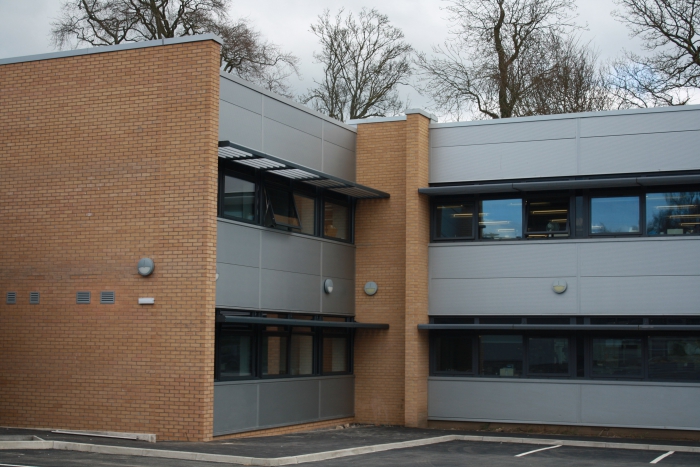Work to expand a leading research and development centre at the University of York is now complete.
Lindum has handed over keys to the two-storey side extension at the Wolfson Atmospheric Chemistry Laboratories, in Innovation Way.
The labs were established in 2013 and were the first of their kind in the UK. They are a base for experimental and theoretical studies relating to the science of local and global air pollution, stratospheric ozone depletion and climate change.
Construction of the new extension follows the demolition of the Harold Fairhairst building. The project also included reinstatement of the car park and some landscaping.
It was the latest in a series of building projects carried out at the York campus by our York team, based in Elvington.
Lindum MD Jonathan Sizer said the job had gone well.
“The successful completion is testament to the teamwork of all stakeholders and the value of good working relationships which underpins our business,” he said.
“We have a “can-do” approach and working with the University team and Wolfston Chemistry in a very open and collaborative way, with regular interaction and feedback in both directions, we are able to overcome any challenges in a very proactive and expedient manner, allowing us to focus on delivering a first class product.
“The most challenging aspect of the work was ensuring we maintained access to the rest of the labs and making sure the surrounding areas remained operational.
“We had a full team working on the site, including one of our York trainees, Oliver Hall.”
Lindum worked with the University to finalise designs for the extension.
“It was a two-stage tender process, meaning we made a preliminary bid for the job and then went on to work collaboratively with the client during the final design process.
“This approach works well as it allows us to bring our construction experience and skills to the table earlier in the process, ensuring the client receives the best value for money.”
The WACL operate as a joint venture between the University of York and the National Centre for Atmospheric Science (NCAS). It is home to around 50 researchers as well as independent research fellows, postdoctoral researchers, PhD students and final year undergraduate research projects.

